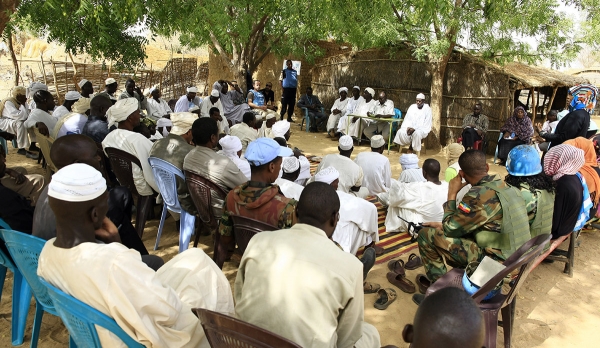According to IDMC, 45.7 million people were living in internal displacement as a result of conflict and violence at the end of 2019 (IDMC, 2020). Moreover, as the NRC’s Secretary General Jan Egeland has highlighted, conflict and violence still uproot millions of people from their homes every year and the world is collectively failing to protect the most vulnerable afflicted by this phenomenon. As a result, this report aims to conclude the “IDPs and Conflict” series by outlining the next steps and actions to be undertaken to progress on the commitment to end internal displacement and protect conflict-induced IDPs.
Although a systematic global assessment of what drives progress toward lasting solutions has yet to be presented, the IDMC has formulated some propositions for the next ten years, which could become a crucial chapter in global efforts to end or at least reduce conflict-driven protracted displacement (IDMC, 2020)
Firstly, a global partnership will be necessary to systematically collect, evaluate and share practices and experience, while facilitating peer-to-peer learning and support. More specifically, this undertaking should cover a range of operational and political practices, ranging from the collection and analysis of data and common standards for planning and reporting, to coordination and partnership, integrated policy development and the monitoring of progress (IDMC, 2020).
Although a growing interest in understanding how to overcome the structural challenges and seize opportunities related to internal displacement, countries looking for inputs from peers and research institutes currently have no trusted source or repository they can build on to advancing their efforts. As a result, establishing a strong evidence base on solutions will be essential for states as end-users and would prompt greater ownership and action (IDMC, 2020).
Additionally, Exchange and cooperation among states that are dealing with internal displacement is considered an essential step. In fact, this is based on the idea that good practices, standards and success cannot be defined externally. While countries are already looking for spaces for dialogue and open peer-to-peer exchanges at the regional and international level, new and existing exchanges should be supported and fostered (IDMC, 2020).
Finally, engaging IDPs in decision-making processes that affect them is a key priority for the future agenda. In fact, it will be essential to facilitate IDPs access to those processes and to enable them to meaningfully engage and make their voices heard through national and local consultations or the establishment of IDPs committees (UNHCR, 2020).







